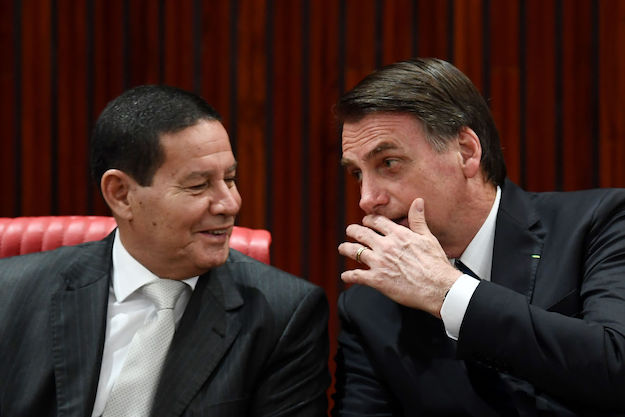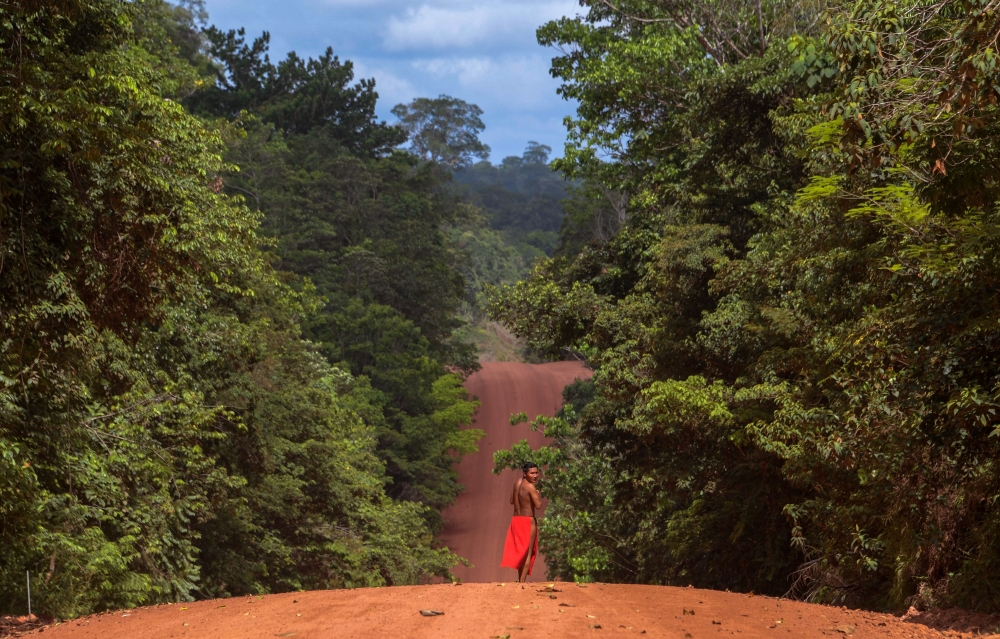This article has been updated.
RIO DE JANEIRO – While the COVID19 pandemic has paused carbon emissions throughout the globe, in Brazil the situation is quite the opposite.The country is one of the few places – if not the only one – where emissions are increasing, despite lockdowns and social distancing. The culprit? Once again, deforestation.
In April, data from the National Institute for Spatial Research (INPE) shows a 63,75% increase in deforestation: the DETER system received alerts encompassing 156 square miles (405.6 km²), compared to 95.6 square miles (247.7 km²) in April of 2019. Cumulative deforestation from August 2019 to April 2020 rose a startling 94% compared to same period ending in April 2019.
The situation is expected to get worse. The dry season is about to start in the Amazon region, and that is when land grabbers and illegal loggers work harder, clearing and burning. The COVID-19 outbreak has not stopped them. Land invaders do not quarantine.
Indigenous lands, where deforestation rose 59% in the first four months of 2020 according to INPE, are especially vulnerable. In the Yanomami territory, where more than 20,000 gold miners have illegally occupied land since early 2019, the risks of COVID-19 infection are growing. Illegal miners and loggers are vectors of transmission, and specialized clinics are not available in rural areas. A 15-year old Yanomami boy recently became the first reported COVID-19 death of an indigenous person in Brazil.
Meanwhile, in Manaus, Belem and São Luis, funeral systems are also saturated. Amazonas State has the highest number of cases per million inhabitants in Brazil, and little to no capacity to treat people from the forest communities.
Land invasions by miners and loggers continue to grow, with the rising price of gold in the international market and domestic unemployment as contributing factors.
But the situation is also fueled by Brasilia: President Bolsonaro has constantly undermined anti-deforestation efforts, with budget cuts and publicly supporting illegal miners.
Encouragement from the top has emboldened criminals to fight for their “rights.” A street protest was organized by illegal loggers in the state of Pará against the burning of their equipment by environmental police. Inspectors were ambushed and one was beaten in broad daylight. Three top level environmental inspection officers were dismissed after a successful operation against loggers in Pará.
Turning to the Military
In response to the COVID-19 outbreak, the government issued a decree – Guarantee of Law and Order (GLO), a federal intervention order valid from May 11 to June 10 – giving the Armed Forces jurisdiction over the rainforest, including unprecedented oversight of previously independent federal environmental protection agencies, such as Ibama, linked to the Ministry of Environment.
While military involvement could ostensibly help stop invaders from spreading the coronavirus in indigenous communities, it risks introducing a level of political interference over intelligence operations carried out by environmental officials to stop illegal mining and logging operations.
The Council of the Amazon created in January with vice president Hamilton Mourão in charge, had already signaled a clear change in command, by removing Environment Minister Ricardo Salles from decisions related to the rainforest. Vice President Mourão said the Council would work to decrease deforestation this year, but until now no comprehensive plan has been put into action and neither civil society nor regional state governments have been meaningfully involved in Council discussions.
In the meantime, a provisional measure (MP 910/2019) allowing invaders of public lands to legalize property occupied irregularly is set for a vote in Congress, despite commitments from both the House and the Senate presidents not to bring to the floor bills that could jeopardize the environment. And by legalizing land-grabbers, MP 910/2019 is guaranteed to have lasting impacts for the rainforest.
And the economy?
Last year’s Amazon fires marked a turning point in public opinion over Brazil’s approach to the environment. International investors and commercial partners began to actively ask about Brazil’s environmental policies and deforestation became a concrete risk to financial flows. The Brazilian government was expected to correct course with a clear strategy to reduce deforestation and guide investments. But the Bolsonaro administration is far from doing that.
Right now, the focus must be on saving lives and containing the spread of COVID-19 among forest dwellers or we risk being witness to the decimation of Brazil’s indigenous populations. That should be front and center. In the Brazilian Amazon region, that means not only dealing with the pandemic through emergency health assistance but also removing invaders from protected lands, and preventing more from arriving.
It is soon to say whether the military intervention will accomplish that. But one thing is certain: military efforts alone will not be able to shape the change the world wants to see in the Amazon. A strong, multi-stakeholder governance is needed to stabilize the health, environmental and economic crises. And to produce the results that will help the whole of the Brazilian economy attract more private investments — and help the country recover from the effects of the pandemic.
—
Unterstell is the director of policy think tank Talanoa. Follow her on Twitter @unatalie
This article was updated to include new information from the author and link to DETER system.








